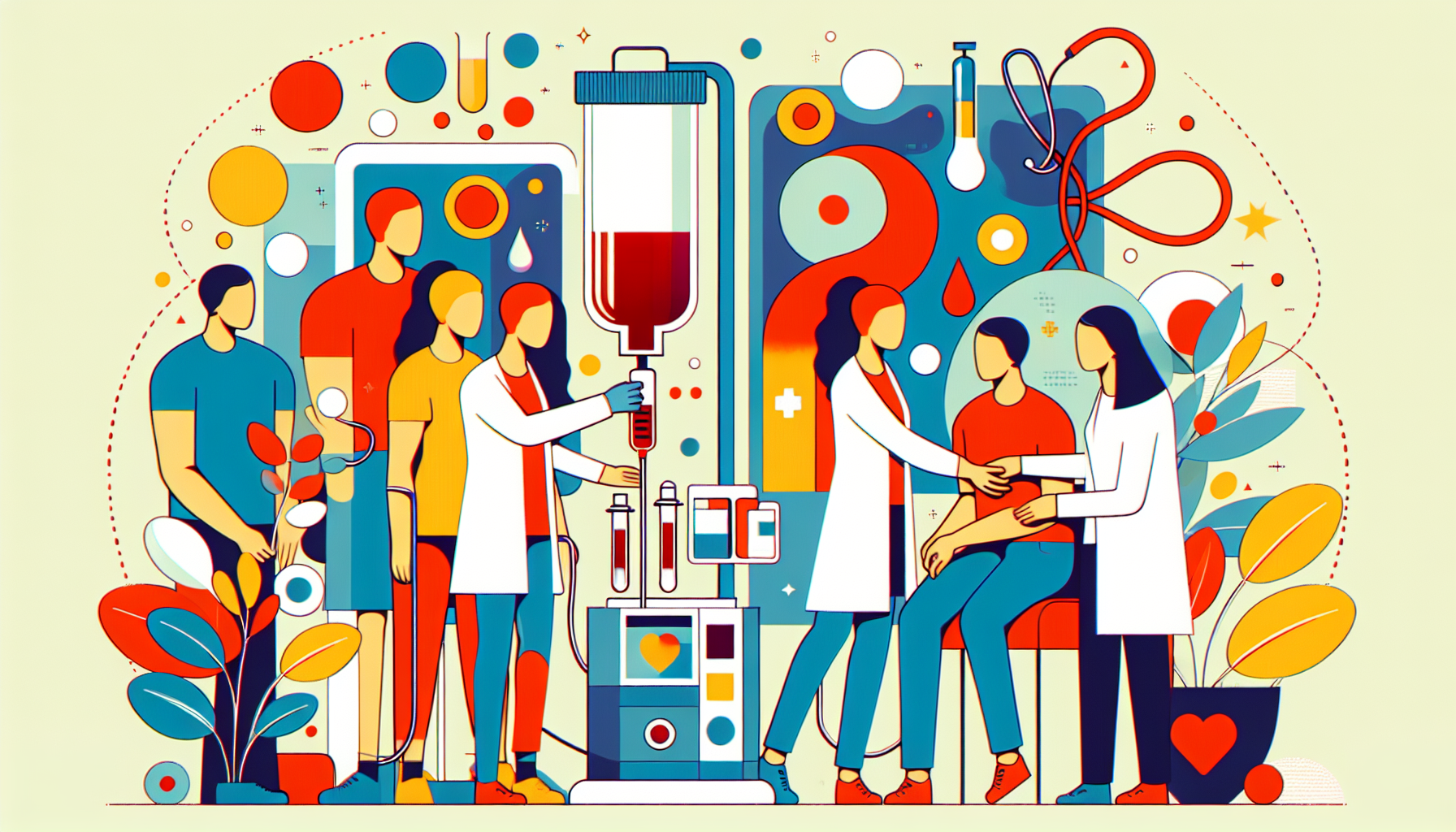Thalassemia is an inherited blood disorder that affects the body's ability to produce hemoglobin, a protein in red blood cells that carries oxygen throughout the body. People with thalassemia may experience anemia, fatigue, and other symptoms due to the reduced amount of hemoglobin in their blood.
Types of Thalassemia
There are two main types of thalassemia: alpha thalassemia and beta thalassemia. The terms "alpha" and "beta" refer to the specific protein chains in hemoglobin that are affected by the genetic mutations.
The severity of thalassemia can vary depending on the number of abnormal gene copies inherited from the parents.
Causes and Risk Factors
Thalassemia is a genetic condition that is inherited from one or both parents. If both parents carry the abnormal gene, their child has a higher chance of developing thalassemia. People from certain ethnic backgrounds, such as those from Asia, Africa, the Middle East, and Mediterranean countries, are at a higher risk of carrying the thalassemia gene.
Symptoms of Thalassemia
The symptoms of thalassemia can vary depending on the type and severity of the condition. Some common symptoms include:
Fatigue and weakness
Pale or yellow skin
Slow growth in children
Enlarged spleen
Dark urine
Poor appetite
Heart problems (due to iron overload from repeated transfusions, leading to cardiomyopathy)
Bone deformities and fractures
Diagnosing Thalassemia
If you suspect that you or your child may have thalassemia, it is important to see a doctor for a proper diagnosis. The doctor will perform a physical examination and may order blood tests, such as a complete blood count (CBC) and a hemoglobin electrophoresis test, to confirm the diagnosis.
Genetic testing can also be done to determine if you or your partner carries the thalassemia gene. Prenatal testing, such as chorionic villus sampling or amniocentesis, can be performed to check if an unborn baby has thalassemia.
Treatment Options for Thalassemia
The treatment for thalassemia depends on the type and severity of the condition. Some common treatment options include:
Blood transfusions to replenish the body's supply of healthy red blood cells
Chelation therapy to remove excess iron from the body, which can accumulate due to frequent blood transfusions
Stem cell or bone marrow transplant, which can potentially cure thalassemia in some cases
Supplements, such as folic acid, to support red blood cell production
Surgery to remove the spleen, if necessary
It is essential for people with thalassemia to work closely with their healthcare team and follow their recommended treatment plan to manage the condition effectively.
Coping with Thalassemia
Living with thalassemia can be challenging, but there are ways to manage the condition and maintain a good quality of life. Some tips for coping with thalassemia include:
Eating a healthy, balanced diet to support bone health and energy levels
Staying up to date with vaccinations to reduce the risk of infections
Avoiding iron supplements, as they can lead to excess iron in the body
Joining a support group to connect with others who have thalassemia and share experiences
If you have thalassemia and are planning to have children, consider speaking with a genetic counselor to understand the risks and options available to you, such as in vitro fertilization (IVF) with pre-implantation genetic testing.
With proper management and care, many people with thalassemia can lead long and fulfilling lives. Advances in treatment options continue to improve the outlook for those living with this condition.
For more information on thalassemia, visit:



